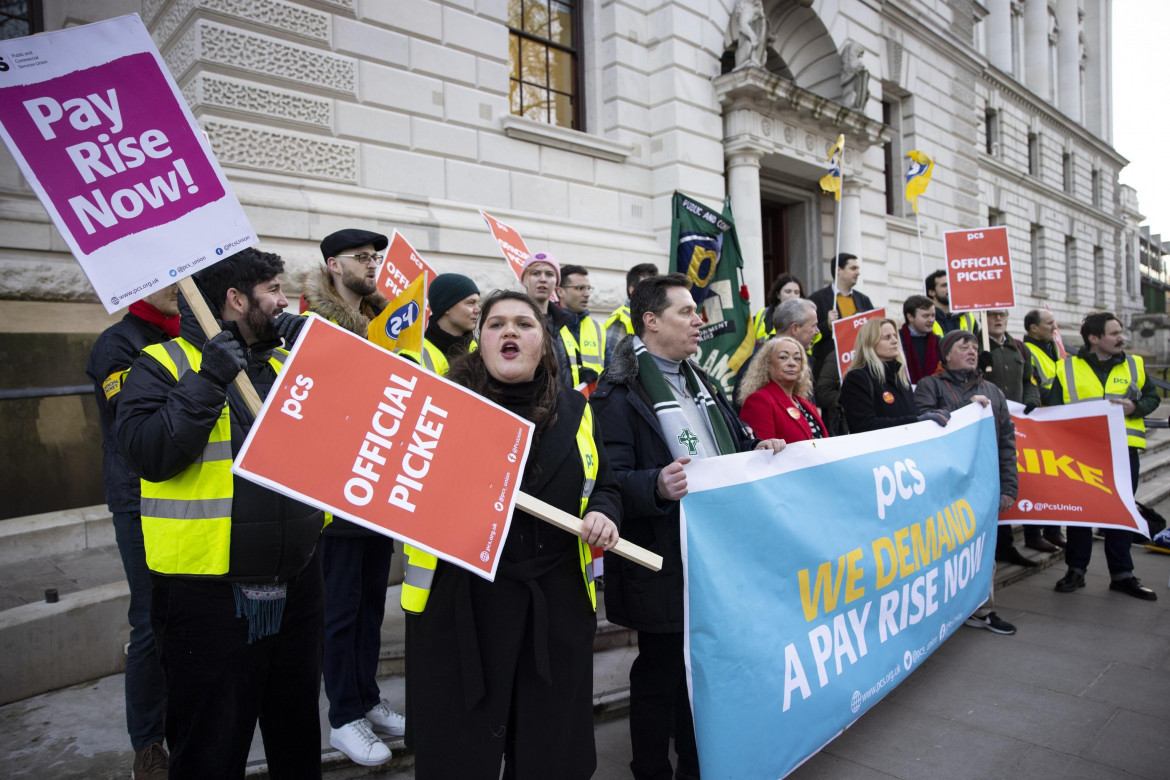Report
500,000 British workers strike for wages that keep up with inflation
Forty percent of schools in England and Wales were closed altogether in the largest strike since 2016. More strikes are planned throughout February and March.

Closed schools, trains not running, university classrooms half-deserted, public offices silent: Wednesday was yet another day in a strike that has now become general, and is set to continue in February and March unless the government gives in to the demands for wage increases in line with inflation, which lie behind the vast majority of the struggles.
Some 500,000 workers rallied, including railway workers, urban transport workers, teachers and civil servants, of whom 100,000 teachers were the most notable group. Many flocked to London in the early morning for a demonstration that ended in the afternoon just a few steps from Downing Street. With all schools in England and Wales involved and at least 20,000 of them – 40 percent – closed altogether, this is the largest strike since 2016. Welsh teachers will strike on February 14, and other days of struggle have been called alternately in other regions of the country for February 28 and for March 1, 2, 15, and 16.
About 30,000 marched through central London to the seats of power in Whitehall, where they heard from various union leaders, including Jo Grady (UCU), Mark Serwotka (PCS) and Paul Novak (TUC). Last to speak was RMT Secretary Mick Lynch, who has distinguished himself lately as an unofficial spokesperson, thanks in part to his powerful and timely press releases. Lynch, whose own workers were conspicuously absent from among the strikers because they were gathered to discuss the government’s latest counteroffer, called for the strike to continue until the demands are met.
What do the teachers want? The same thing as all the other striking categories: a wage that keeps up with inflation, and that won’t be diminished by more cuts to the already worn-out education budget. This category, horribly underpaid like many public sector workers, automatically burdened with unpaid overtime (teachers and school administration workers also have to complete the bureaucratic work once reserved for secretaries, the same as with family doctors), has been told by Education Minister Gillian Keegan – whose wrist is graced by a £10,000 Rolex – to be “realistic” as to their demands and that the government has already allocated extra funds for schools, 2 billion pounds, so that “funding will be at its highest ever level.”
In the words of Led Zeppelin, the song remains the same: no margin for negotiations, inflation must be lowered at all cost, with the well-trodden invocation of the price-salary spiral as a “scientific pretext” for the refusal to let the money flow. It’s the usual “traditional” remedy that disqualifies a right and just political and ideological choice in the name of economic necessity. The conflict can only grow, especially if the government continues pushing for the bill it proposed that would force a proportion of workers to go to work on strike days in order to guarantee a minimum level of services. In order to further justify its no to wage increases, the government also claims to be following the contractual guidelines elaborated by what amounts to one of the many think-tanks the government is hiding behind: Pay Review Independent Body, which is only an “independent body” insofar as it’s an extension of the government itself.
And it’s not the case that the strikes are sparking off anything among Labor’s political minds either. During Prime Minister Questions, Keir Starmer tried desperately to avoid talking about the subject — “too risky.”
Originally published at https://ilmanifesto.it/gran-bretagna-in-sciopero-continuo-la-protesta-del-pubblico on 2023-02-02
